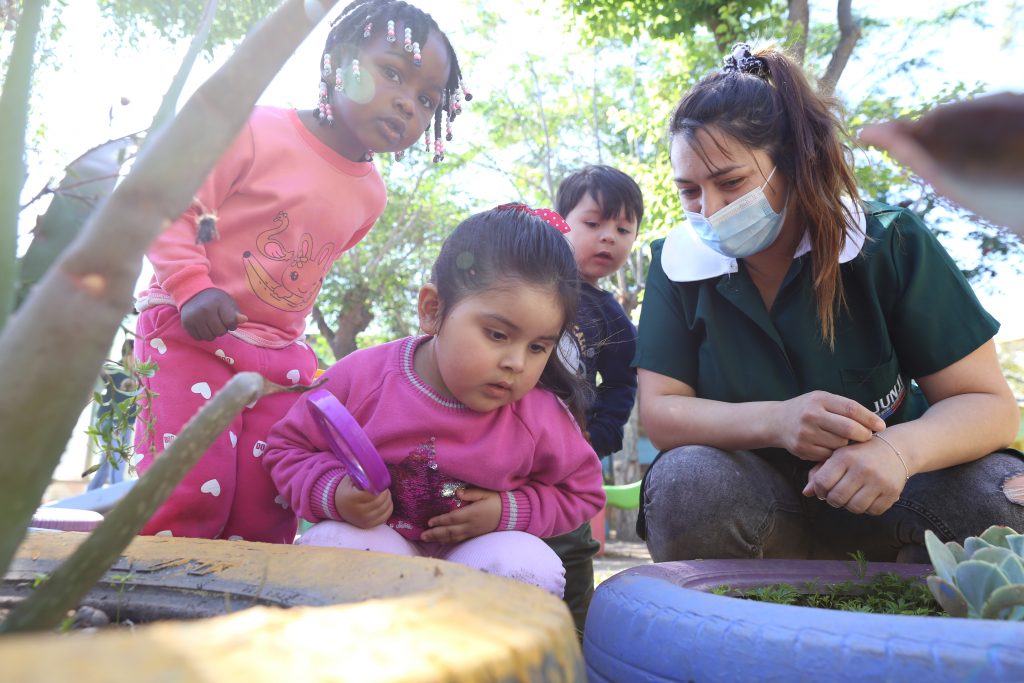Nearly 100 educational units of the National Kindergarten Board (Junji) in the regions of Antofagasta, Coquimbo, Maule, La Araucanía and Magallanes will seek, through various strategies tested by Fundación Educacional Oportunidad, to promote kindergarten attendance, so that children have permanent and continuous access to quality learning.

It is no mystery that the pandemic affected the education system at every level, especially those children who went from in-person attendance to remote educational experiences or, even more so, those who were not even able to enter kindergarten or school when their age was due.
Against this backdrop, and with the aim of ensuring access to quality kindergarten education, the National Kindergarten Board (Junji) proposed, among other actions, to return to the attendance levels achieved before Covid-19's irruption, which in 2019 reached 71.9% in directly administered classic kindergartens, and which to date has averaged 20.7%.
In order to highlight the importance of regular kindergarten attendance in children's learning, and to foster a collaborative culture that promotes coordinated and articulated work, Junji will sign an agreement with Fundación Educacional Oportunidad, with whom it will implement a pilot program during 2022 in the regions of Antofagasta, Coquimbo, Maule, La Araucanía and Magallanes, in the first instance, whose objective will be to promote this collaborative culture.
"These almost two years of the pandemic have made clear the importance of face-to-face kindergarten education, which is where irreplaceable interactions and learning take place. For this reason, we believe that the work to be done with the Foundation will allow families to understand the importance of children attending and remaining in kindergarten," said Junji's executive vice-president, Adriana Gaete.
To this end, the Foundation has proposed to JUNJI to share strategies and lessons learned from its "A Good Start" program, both to the professionals of the Educational Quality department and to the technical and educational teams at the national level. The aim of this collaboration will be to transfer knowledge related to the promotion of attendance and permanence, and thus make progress in reducing chronic absenteeism, focusing on the child through a process of training and support. In this way, interventions developed and tested by the Foundation in hundreds of public schools across the country will be shared.
Some of the issues that will be addressed in this pilot program are related to changing the perspective on group attendance and focusing on particular cases within the educational communities. It will also aim to generate strategies that encourage and safeguard attendance, with the creation of attendance committees being one of the strategies that will be implemented to reverse those cases of high non-attendance.
The executive director of Fundación Educacional Oportunidad, Marcela Marzolo, explained that "for our foundation this collaboration is key, as it opens up a space for us to share what we have been building for years through our work promoting school attendance in kindergarten levels in public schools that are part of the Good Start program".
He added that "this alliance will allow us to learn from Junji's work and to join forces and generate learning to build a proposal to promote attendance in kindergartens and nurseries".





